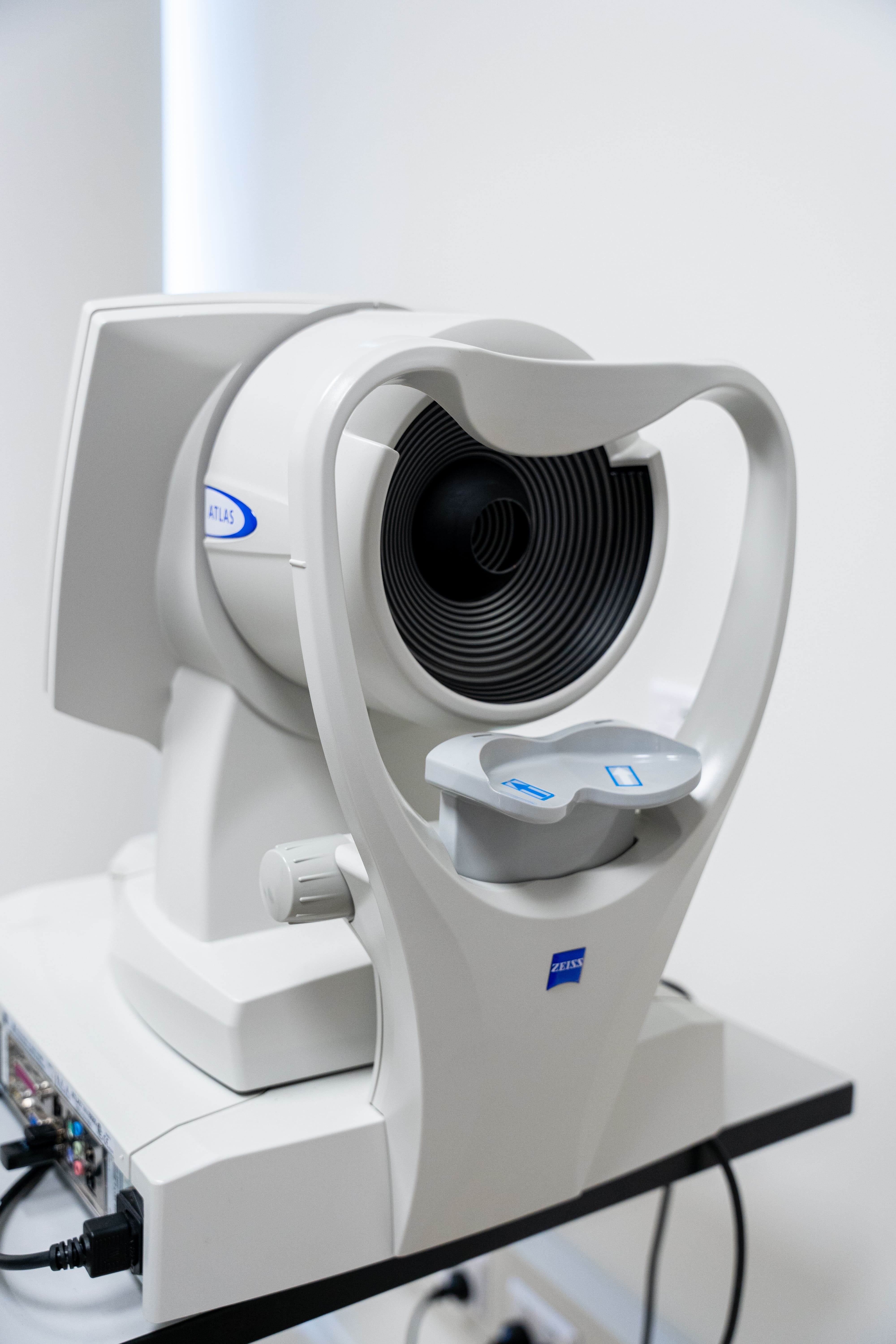Cataracts
Cataracts are a common age-related condition where the eye’s natural lens becomes cloudy, gradually affecting vision clarity.



With over 35 years of clinical knowledge, we’re trusted to deliver safe, effective results.

If needed, your vision can be further enhanced with laser correction later on.
.jpg)
You’ll be cared for by experienced specialists who personalise every step of your treatment.
Cataract & Refractive Lens Exchange (RLE) – FAQs
Cataract progression varies between individuals, and even between eyes.
- In younger people or those with diabetes, cataracts may progress in months.
- Most age-related cataracts develop gradually over several years.
We’ll monitor changes with regular eye exams and guide you on the best time for surgery.
No. Your eye will be numbed with local anaesthetic drops.
- You won’t feel pain, just mild pressure or movement.
- A gentle spring keeps your eyelids open, you won't see the surgery happening.
- After surgery, some people feel slight irritation or sensitivity, but this settles quickly with eye drops and rest.
Yes. Once your natural lens is replaced with an artificial one, the cataract cannot return.
- Around 10% of people may develop a mild thickening of the lens capsule months or years later. If needed, we can restore clarity quickly with a simple laser procedure (YAG capsulotomy).
You’ll likely notice clearer distance vision, especially for driving, TV, and outdoor activities.
- Standard lenses often require reading glasses after surgery.
- Premium lenses (such as multifocal or extended depth-of-focus lenses) can reduce your need for glasses altogether.
We’ll help you choose the right lens based on your lifestyle and vision goals.
Most people can drive again within 24 hours, but we’ll confirm at your post-op appointment.Please wait for your surgeon’s clearance before getting back behind the wheel.
You’ll need to rest for the first 2–3 days, with full recovery over about 6–8 weeks.
- Light sensitivity is normal on day one, avoid screens, reading or TV until your eyes feel more comfortable.
- Avoid heavy lifting or bending for at least 2–4 weeks to protect your healing eyes.
- Walking: OK after a few days
- Strenuous workouts, gym, or lifting: Wait 2–4 weeks
Yes, flying is safe after surgery. Check with your surgeon if you have a flight booked soon after surgery, we’re always here to advise.
- Cabin pressure won’t affect your eyes
- Bring lubricating drops as air travel may cause dryness
Both surgeries involve replacing the eye’s natural lens with an artificial one.
- Cataract surgery is done to remove a clouded lens caused by ageing or disease.
Refractive Lens Exchange (RLE) is performed for vision correction, even if you don’t yet have cataracts. RLE is ideal for those over 45 wanting to reduce or eliminate the need for glasses, especially if laser eye surgery isn’t suitable.
Our commitment doesn’t end with your surgery.
- You’ll have scheduled follow-up visits to monitor your healing and visual outcomes
- We’re always here for reassurance, advice, and long-term support
- If you ever have concerns, our friendly team is just a call away
Still have questions?
We’re here to make sure you feel informed, supported, and confident—every step of the way.








.png)